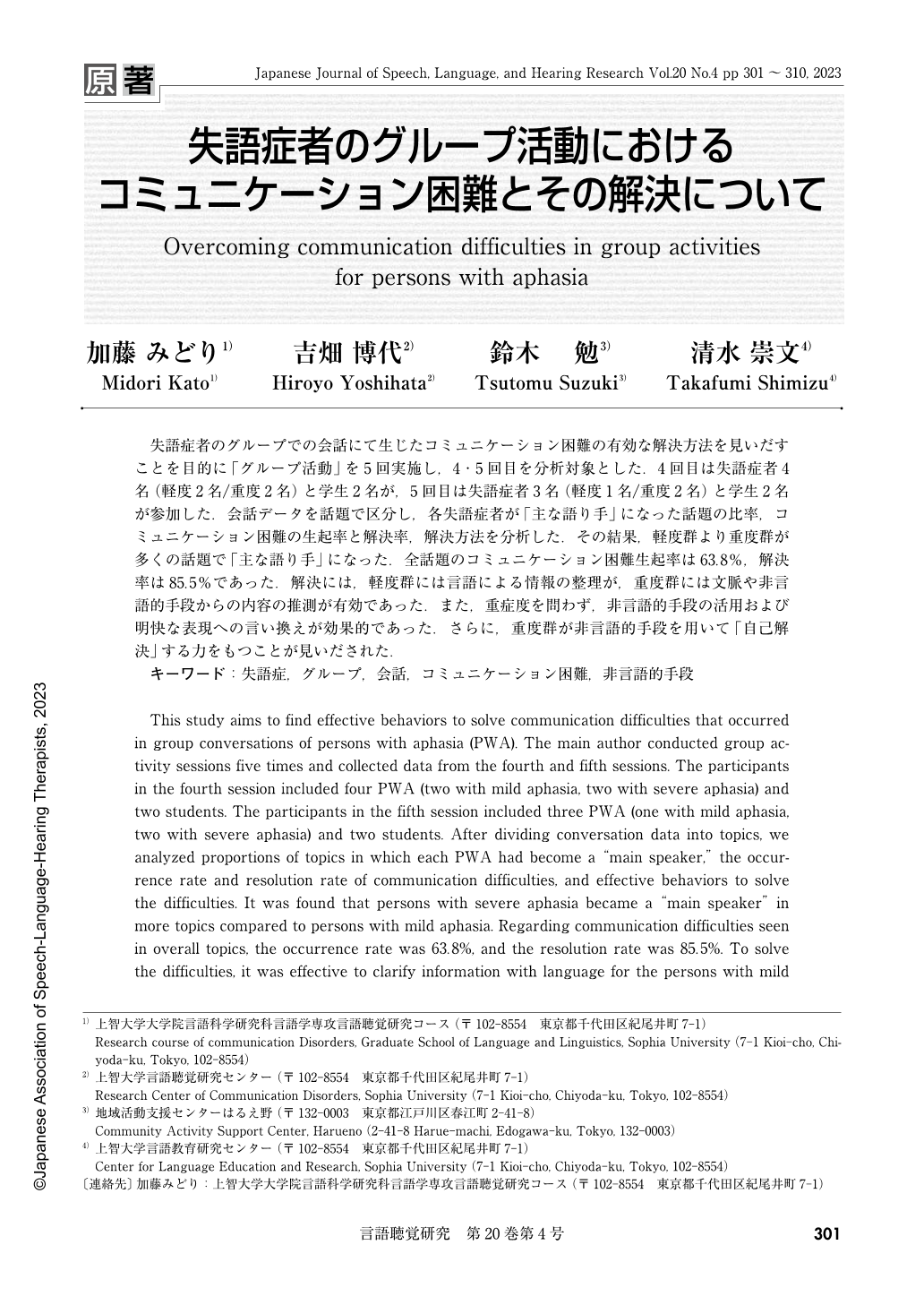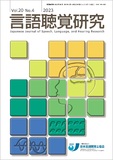Japanese
English
- 有料閲覧
- Abstract 文献概要
- 1ページ目 Look Inside
- 参考文献 Reference
失語症者のグループでの会話にて生じたコミュニケーション困難の有効な解決方法を見いだすことを目的に「グループ活動」を5回実施し,4・5回目を分析対象とした.4回目は失語症者4名(軽度2名/重度2名)と学生2名が,5回目は失語症者3名(軽度1名/重度2名)と学生2名が参加した.会話データを話題で区分し,各失語症者が「主な語り手」になった話題の比率,コミュニケーション困難の生起率と解決率,解決方法を分析した.その結果,軽度群より重度群が多くの話題で「主な語り手」になった.全話題のコミュニケーション困難生起率は63.8%,解決率は85.5%であった.解決には,軽度群には言語による情報の整理が,重度群には文脈や非言語的手段からの内容の推測が有効であった.また,重症度を問わず,非言語的手段の活用および明快な表現への言い換えが効果的であった.さらに,重度群が非言語的手段を用いて「自己解決」する力をもつことが見いだされた.
This study aims to find effective behaviors to solve communication difficulties that occurred in group conversations of persons with aphasia (PWA). The main author conducted group activity sessions five times and collected data from the fourth and fifth sessions. The participants in the fourth session included four PWA (two with mild aphasia, two with severe aphasia) and two students. The participants in the fifth session included three PWA (one with mild aphasia, two with severe aphasia) and two students. After dividing conversation data into topics, we analyzed proportions of topics in which each PWA had become a “main speaker,” the occurrence rate and resolution rate of communication difficulties, and effective behaviors to solve the difficulties. It was found that persons with severe aphasia became a “main speaker” in more topics compared to persons with mild aphasia. Regarding communication difficulties seen in overall topics, the occurrence rate was 63.8%, and the resolution rate was 85.5%. To solve the difficulties, it was effective to clarify information with language for the persons with mild aphasia. On the other hand, it was beneficial to deduce their intended meanings from contexts or their non-verbal communication behaviors for the persons with severe aphasia. Regardless of severity of aphasia, it was effective to adopt non-verbal communication and to rephrase speech with simpler expressions. Furthermore, the study showed that the persons with severe aphasia have the capability to actively participate in the process of solving communication difficulties by using non-verbal communication measures.

Copyright © 2023, Japanese Association of Speech-Language-Hearing Therapists. All rights reserved.


